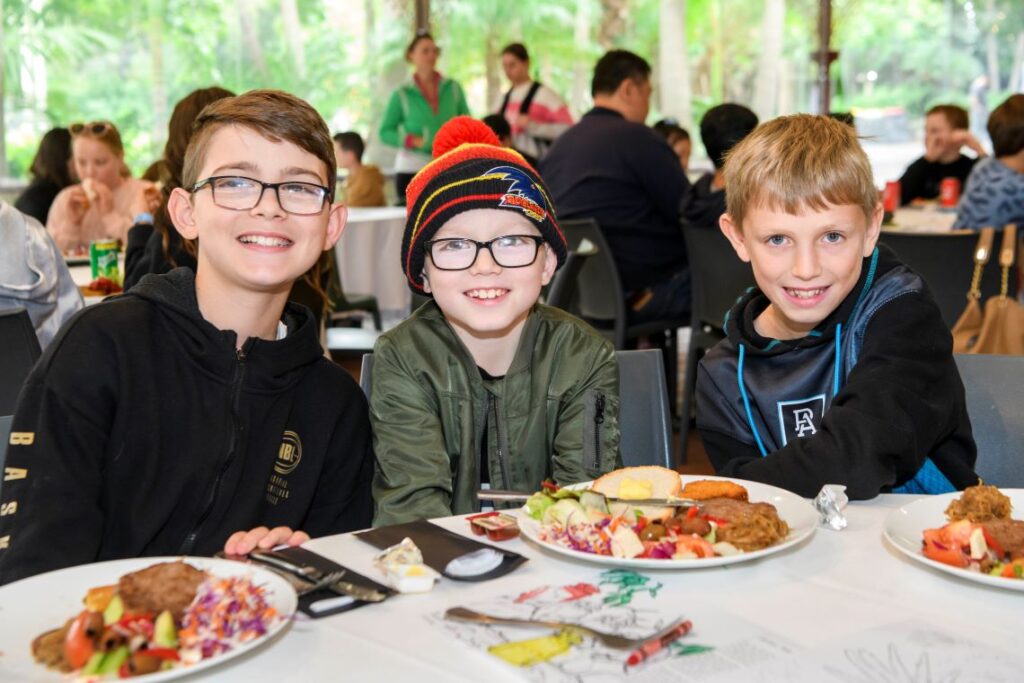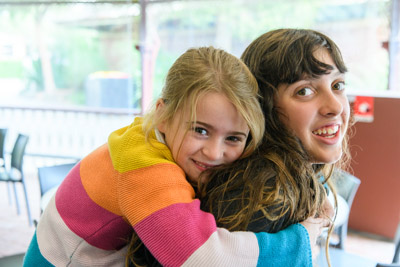Almost one in eight South Australians is a carer, including around 30,000 young people and children. We speak to Kym Staples from Carers SA about what it’s like to be a young carer, and why it’s so vital that carers’ voices are heard during the current review of the Carers Recognition Act.
The importance of SA’s carers
A carer is someone of any age who provides assistance and support for a family member or friend who is living with one or numerous health issues including:
- disability,
- mental illness,
- chronic conditions,
- dementia,
- frailty and old age,
- terminal illness,
- alcohol or other drug issues.
There are around 245,000 unpaid carers across South Australia – that’s more than 13 per cent of our population. Their importance can’t really be overstated. Unpaid carers are integral to the maintenance of our aged, disability and healthcare systems, providing around 2.2 billion hours of care nationally each year, saving Australians more than $77 billion.
Our young carers
South Australia has around 30,000 young carers aged under 25 – that means there’s an average of 2-3 young carers in every school classroom.
It’s difficult to hear some stories from young people, but it’s also important not to overlook the positives in caring, says Kym Staples, Carers SA Team Leader Young Carer Services. “Caring can build strength, resilience and close family relationships. We hear and see some amazing things from young carers.”
It’s important to understand that each young carer’s experience is unique, Kym says. They do it all – from cooking and cleaning to financial management. Sometimes, they even sacrifice their education to work, supporting their families financially.



The cost of caring
Unpaid caring often comes at a personal cost. Carers experience poorer health, more financial stress and higher levels of psychological distress than other South Australians. And there’s a literal cost too, because caring has a big impact on people’s careers and work life. On average, primary carers sacrifice $392,500 in lifetime earnings.
Kym says there are specific challenges for young carers. “Quite often, they will put off their own goals or aspirations, because they’re too busy focused on providing that support to other people,” she says. “Young carers often have poor educational outcomes because of that. It can affect their capacity to attend school and there’s often a lot of absences or being late.”
The same goes for extracurricular activities, sports and hanging out with friends – young carers just don’t have the same free time for these activities that their peers do, and can become socially isolated.
Another problem is getting the word out that help is available: Kym says a lot of young carers don’t receive the support they deserve because they don’t realise they’re carers – they see what they do as just part of their family responsibilities.
What support is available?
Carers SA is the leading advocate and support provider for unpaid carers in South Australia, with funding from the State Government through the Department of Human Services (DHS), and the Federal Government. That means the organisation supports carers of all ages – including young carers – with free services such as coaching, counselling, respite care, and support planning.
More broadly, DHS supports services for young carers and carer breaks of all ages. For young carers, this includes case management and advocacy, information, education, connection to social and support groups and transport.
“These are opportunities for young carers to have a little bit of timeout and do something fun which is just for them,” Kym says. “They can meet other young people who are in a caring role and connect.”
Supporting young Carers: A community effort
Want to make a difference for young carers? Here’s how you can help:
- Educate yourself about carers’ roles and challenges by talking to them about their experiences.
- Be there as emotional support: Listen without judgement when they need to unload. It’s a simple but powerful way to make a difference.
- Maintain your friendships with young carers. Invite them out – inclusion in social events is crucial, even if they can’t always show up.
- Encourage them to reach out to one of the Young Carer Support Service (YCSS) providers, including Carer and Community Support, Carers and Disability Link, Centacare Catholic Family Services, and Carers SA. A small push can lead to big support.


The Carers Recognition Act review
The South Australian Carers Recognition Act 2005 sets out rules for State Government agencies in their interactions with carers, which cover things like recognition, consultation and support. The Act also acknowledges the role of unpaid carers through its SA Carers Charter, which sets out aims for carers to have the same rights, choices and opportunities as other South Australians.
A review of the Act is currently underway and carers are being asked to provide their feedback as part of the community consultation. The SA Government will then use their responses to recommend changes to the Act.
Time for carers to speak up!
Kym says the SA Carers Recognition Act is a key piece of legislation for the carer community and is an important opportunity for carers to have their voices heard.
“It’s vital that anyone who is in a caring role is able to participate in the consultation process” she says. “We really want to get the word out so that carers are able to provide their perspective and their experiences.”
“The actual voice of the carers is beyond valuable within this consultation, because it’s about outlining what’s working, what’s not working and where the gaps are. In consultations, it’s so important to involve carers, ensuring policies are done with them, not for them.”
For more information and to have your say, visit Carers Recognition Act Review by 15 December. You can fill out a short online survey or email your submission to carersactreview@sa.gov.au.
If you help care for someone, support is available – contact Carers SA online or call 1800 422 737.

















